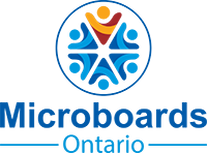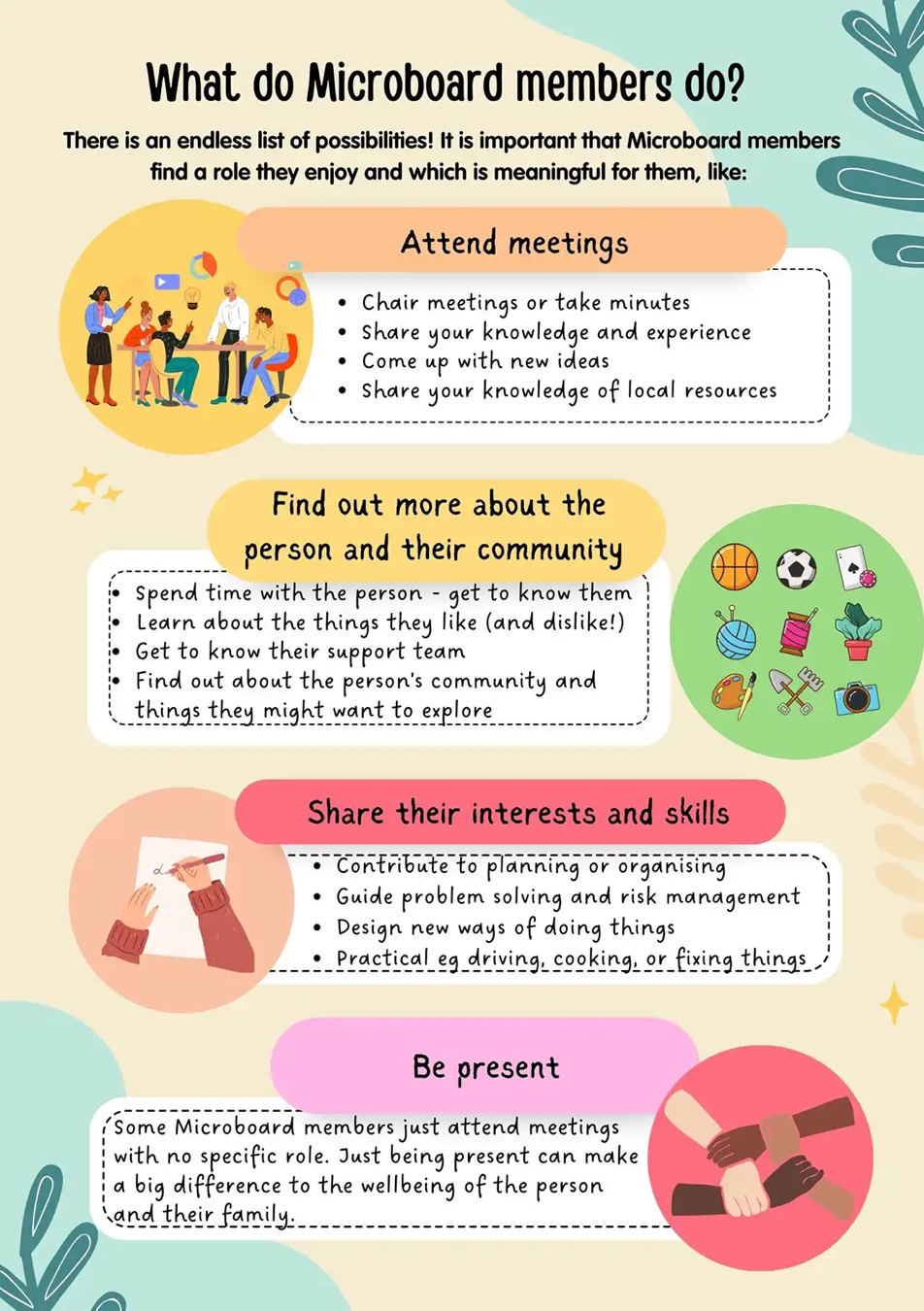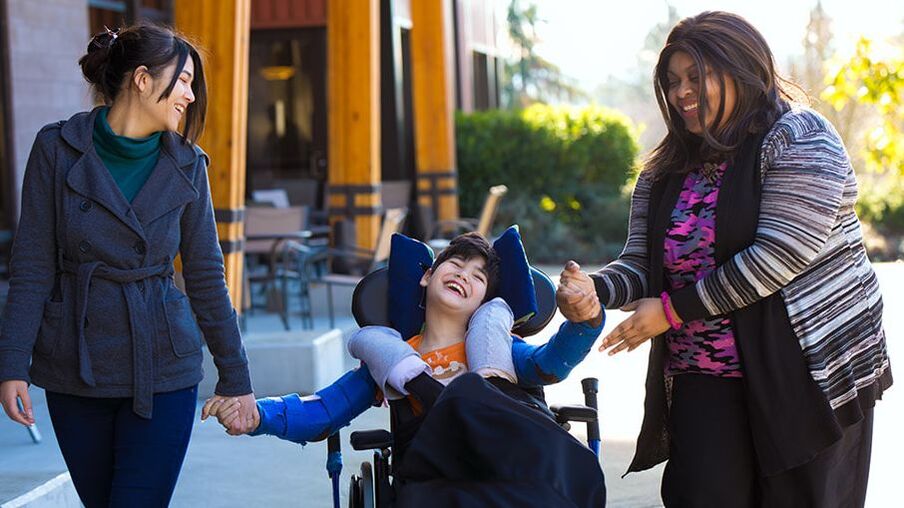How Do You Get Ready for a Microboard?
Beginning to think about what will happen to your family member in the future?
Wondering who is going to ensure their goals and vision for their life are upheld?
Then now is a good time to start thinking about a Microboard. Microboards can be started at any age, but they do need some planning, so it's something to start before you or your family member need one.
If you think a Microboard is something you and your family member are interested in, send us an email at [email protected].
Wondering who is going to ensure their goals and vision for their life are upheld?
Then now is a good time to start thinking about a Microboard. Microboards can be started at any age, but they do need some planning, so it's something to start before you or your family member need one.
If you think a Microboard is something you and your family member are interested in, send us an email at [email protected].
Brendon Pooran, Chair of Microboards Ontario and PooranLaw Principle discusses the basic steps to incorporating a Microboard in Ontario.
Can Anyone Set Up A Microboard?
Yes!
Setting up Microboard may seem easy. However, Microboards are not like other types of non-profits because there is one person at the centre of the Microboard and their safety, dignity and individual rights must be protected. Setting up a Microboard without first understanding the principles and values may not result in the best outcomes.
Microboards Ontario is here to help ensure a Microboard is positioned for success.
Setting up Microboard may seem easy. However, Microboards are not like other types of non-profits because there is one person at the centre of the Microboard and their safety, dignity and individual rights must be protected. Setting up a Microboard without first understanding the principles and values may not result in the best outcomes.
Microboards Ontario is here to help ensure a Microboard is positioned for success.
Who Do I Ask To Be On The Microboard?
Friends, family, neighbours or former support staff. The key is having people sit on a Microboard who have a genuine relationship with the person. Generally, a Microboard is comprised of at least 5 unpaid people who have a relationship with the person. Five is suggested because it provides a range of voices, experiences and knowledge. But who to ask? Remember this is about surrounding your family member with trusted people who will help your family member navigate the community and make decisions.
Here are a few tips to consider when thinking about potential Microboard members:
And watch for a workshop about Succession Planning, which will cover asking Microboard members in the Spring, 2024.
Here are a few tips to consider when thinking about potential Microboard members:
- Who is already a member of your family member's life?
- What kind of people would you like as part of the Microboard?
Think not only about their talent, interests and occupation, but values, and most importantly, that they genuinely care about the well-being of your family member. Consider age and stage, culture and identity too. - Know why you are asking - is there something specific you would like this person to do?
Is there a special bond between them and your family member? Is that person an accountant, a handy person or would be great at helping with hiring support staff? - Believe that this person's involvement is important.
Half the battle is having confidence.
And watch for a workshop about Succession Planning, which will cover asking Microboard members in the Spring, 2024.
What do Microboard Directors do?
|
Each Microboard is as unique as the person who the Microboard is for. The person-supported is often a director, although that's up to them to decide. The role directors play, in addition to the fiduciary responsibilities of running the organization include:
|
image courtesy of Microboards Australia
|
Do I need an Independent Facilitator?
Independent Facilitators have a unique role in helping the Microboard to remain focused, aligned with its values and upholding the mission of the Microboard, which is to support that person. Independent Facilitators do not provide direct support, nor are they a voting-member of a Microboard. These professionals know and understand Microboards and can provide support - whether you're getting ready for a Microboard, or already have one.
Click here to learn more about what an Independent Facilitator does, and to find one near you.
Click here to learn more about what an Independent Facilitator does, and to find one near you.
Learn More
Setting up a Microboard is the first step of a lifelong journey for you and your family member, and provides peace of mind knowing they will be supported into the future by people who care about them. To find out more about the role of Independent Facilitation, governance, legal aspects and more, visit Workshops. For more information about Microboards, their role, benefits and more, visit our About Microboards page, or Stories for the real life impact Microboards have had on people and families.













